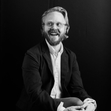Jeff Goins's Blog, page 46
December 23, 2015
086: The Evolution of a Writer: How to Pivot Your Writing Without Losing Your Audience [Podcast]
As a writer first begins creating content, they quickly discover that narrowing the topic increases the growth of their audience. While writing for everyone is the quickest path to oblivion, niching down too far might get you stuck in the weeds.
When I first starting writing online I focused on leadership topics. Over time the content shifted to marketing tactics and eventually to writing. Now, I write about the life of a writer, which intersects with who I am and my life experiences.
This may shock you, but I don’t want to write about writing forever. I want to earn your trust as a reader and have the freedom to write about a variety of things. I am a writer and I’ve got my whole life to do this and explore new ideas.
None of us are one-dimensional. The challenge is what to do as you continue to develop as a creative and embrace change without leaving your audience behind?
This week on The Portfolio Life, Andy and I talk about perspectives on the writing process and maintaining your voice regardless of the topic. Listen in as we discuss being honest with your reader and how to go about developing yourself as a writer in front of your tribe.
Listen to the podcast
To listen to the show, click the player below (If you are reading this via email or RSS, please click here).
A tale of two coffee blogs
It’s no secret that I’m a coffee snob. I enjoy learning about the roasting process and trying out new brewing methods in my quest for the perfect cup of joe. Recently, I started researching espresso machines and have probably read one hundred different reviews by this point.
Here’s the problem—I can’t remember a single name of anyone who wrote one of those reviews.
While the content is valuable, there’s no worldview, no resonating voice, no personality to engage with. I don’t have a vested interest in a review website because it’s just a resource.
However, in my search for an espresso machine, I might stumble upon a blog written by someone so passionate about coffee that it drips into every post. Maybe they include a few product reviews, but the blog focuses on how coffee brings people together to create community.
Perhaps each post is written in a casual, conversational tone, and the writer sounds like a close friend sitting across the table from you at a coffee shop.
You’d buy whatever espresso machine they recommended, wouldn’t you?
A topic may catch a reader’s attention, but your personality—your voice—is what gains their trust and gives you permission to take them on a journey.
Show highlights
In this episode, we discuss:
How writing is influenced by where you are versus where you aspire to go
The irony of not reading blogs about writing
Choosing what to write about
Defining your writing voice in a new context
How to determine how much of yourself to include in your writing
Why killing 15% of your platform is a good idea
Experimenting with voice and style over time
What you need to do to bring your readers along on your journey
The tension between a topical blog and a personal brand
Organizing the platform of your portfolio of work
Quotes and Takeaways
”Take people with you on the journey so you can write more honestly.” —Andy Traub
Start with personality and you eventually earn the right to talk about other things.
Connecting people to a personality builds more trust than talking about what they are interested in.
Resources
The Memoir Project by Marion Roach Smith
The Authentic Swing by Steven Pressfield
BONUS: Tickets for the 2016 Tribe Conference are now available. To celebrate, I’ve asked the event team to discount the tickets for Christmas. Snag a ticket here for yourself or a friend before the price goes up January 1.
Where do you get your writing inspiration from? What you’ve already done? Or what you’re trying to become? Share in the comments

December 21, 2015
The Dark Side of Success and What I’m Changing in the New Year
Train yourself to let go of everything you fear to lose.
–Yoda
Failure is not the worst thing that can happen to you. It can be a friend, if you learn from it. The worst thing that can happen is to lose your identity and forget why you’re doing what you’re doing. I’m ashamed to say that happened to me recently.
We tend to think that success is the destination, the thing we’re striving to accomplish. But in reality, it’s just another stop on the journey of life. We need to remember the goal is to keep moving, and the most dangerous thing we can do is stand still for too long.
It’s probably no coincidence I saw the new Star Wars film a week after a life-altering personal retreat. I’ve always loved that franchise and this most recent contribution to the canon did not disappoint. In preparation for it, I read up on the history of Star Wars and learned a few interesting things I recently detailed in an article for Entrepreneur.
While writing the piece, I found myself relating to the worst things success can bring you — essentially, the fear of losing the thing you worked so hard to build. In a nutshell, what made Star Wars great was that it was a risky endeavor, constrained by its own limitations, and fueled by a movement of die-hard fans. And these are the very things its creator seems to have forgotten later.
But this is not a recrimination of George Lucas. It’s an indictment against myself.
Starting down the dark path
Five years ago, I began a risk-filled journey in an attempt to write full-time. I had little free time and less money to pursue my passion. But I had to try. So I used what resources were available and began to build a community online.
Eighteen months later, I had quit my job, launched a business, and published two books. The future looked bright. Fast forward to the present, and I just finished my most frenetic year yet. It was so busy I didn’t stop to ask myself, “Why am I doing this?”
When I finally did, the answers surprised me:
Because people expected it and I didn’t want to disappoint them.
Because I felt like this is what I had to do to succeed.
Because I was too afraid of being ignored or irrelevant to try something new.
Over the past year, I’ve achieved almost everything I ever thought I wanted, at least in terms of typical measurements of success — money, fame, freedom — and it wasn’t what I thought it’d be. It was neither overwhelming, nor did success ruin my life like many fear.
If anything, it was just a little disappointing. Nobody ever tells you that the hard part isn’t accomplishing your goals. It’s figuring out what you want to accomplish in the first place.
When goal-setting steers you wrong
Last January, I set some goals I never would have thought of attempting just a few years before. By December, I had checked them all off my list and was left with as a sense of longing, as if my soul was saying, “Is this it?”
Maybe it wasn’t.
So I went on a retreat, and at the eleventh hour when some of the best rescue operations come, I read a book that changed my perspective. A friend from Twitter advised that I pick up Parker Palmer’s A Hidden Wholeness, and it was the fresh air I didn’t know I needed. The message is that the source of our greatest trauma is living the “divided life” in which our souls and roles do not integrate.
Here’s an excerpt:
Afraid that our inner light will be extinguished or our inner darkness exposed, we hide our true identities from each other. In the process, we become separated from our own souls. We end up living divided lives, so far removed from the truth we hold within that we cannot know the “integrity that comes from being what you are.
Can you relate? I can.
This past year for me has been filled with “wearing other people’s faces” as May Sarton wrote. I’ve made multiple attempts at trying to achieve other people’s success and mistakenly thought that’s what I needed. But none of it fit.
This has nothing to do with money or fame or worldly success and everything to do with trying to fill a role instead of trying to find my soul. These past few months, I’ve been searching for myself, and at times, the search has proven elusive. I went down wrong roads and pursued what I thought I wanted only to get it and realize it wasn’t right for me.
If you listen, your soul will tell you what it needs, what you need. So when I get too far from “home” — from who I really am — I can feel it. Now that I’ve started listening again, I feel vulnerable but know that I’m on my way to living an undivided life, and I can think of nothing better.
The three commitments
I’m terrible at goal setting but still aspire to get better at it. This recent reflection was more about connecting to who I am. During the process, three things came to mind. So here are my commitments to myself (and, in a way, to you):
Trust. I will never betray the trust of a reader, friend, or confidante even when it furthers my own ambitions — especially then. I will always seek to be honest in all things I do and say. When things are obscure, I will seek to make them as clear as possible, so no assumptions are made.
Integrity. I will be who I say I am, and when I am not, I will admit it. I will live by my values as best I understanding them. I will not lead a divided life and will not betray my conscience, even when doing so could lead to more success. For me, this means that I am a creative who runs a business, not a CEO who happens to write. And that distinction is important to me.
Generosity. I will commit myself to serving the needs of others, which means first taking care of myself both spiritually, emotionally, and physically. I will give my best to my family, friends, community, and readers (in that order). I recognize that my life is not about me, but that my gifts are meant to be given away.
In other words, I will be who I am even if that means it makes me less famous or not as rich. I would rather be myself and fail than play the role of someone else and get praise for being untrue to myself.
And that, friends, is all I have to say about that.
Resources
If you are reflecting on your own integrity, I suggest the following resources to help you:
A Hidden Wholeness by Parker Palmer (truly life-changing!)
The Entrepreneurial Genius of Star Wars
On Designing the Life You Want to Live
Michael Hyatt’s Free Video Series on Goal-setting
3 Ways to Reinvent Yourself
Did you ever succeed (or fail) at something that revealed to you what you really wanted out of life? Share in the comments.
Photo Credit: simononly via Compfight

December 16, 2015
085: How to Build a Lasting Lifestyle Business Around Your Big Idea: Interview with Fizzle [Podcast]
Many people dream of quitting their jobs, packing up their car, and driving off into the sunset in search of adventure. When someone actually does it, we pay attention.
After working as a Fortune 500 consultant, Corbett Barr wanted more control over his life and work. So, he launched a traditional Silicon Valley startup, complete with a software prototype, angel investors, office, and staff.
And yet, as an entrepreneur Corbett actually felt less in control. He’d simply traded a list of clients for another list of people to report to. He was pulled in a million directions and grew frustrated with the business he’d worked so hard to build.
That disenchantment led Corbett on an 8-month road trip through Mexico. The experience defined the values behind what would one day become Fizzle.
This week on The Portfolio Life, the Fizzle team and I talk about building a new version of entrepreneurship. Listen in as we discuss the pitfalls of monetizing your passion and the wrong place to look to validate your ideas.
Listen to the podcast
To listen to the show, click the player below (If you are reading this via email or RSS, please click here).
Don’t go it alone
Many entrepreneurs get struck with a big idea and make the mistake of isolating themselves from two very important groups of people. Their customers and their team. The trouble with creating in a vacuum is you have no clear understanding of what your customer needs.
If you want to add value to your audience you must listen to them. Pay attention to what people ask you for. And give it to them.
Delivering value is rarely done well flying solo. Entrepreneurs sometimes underestimate the effort required to bridge the gap between where they are and where they want to go. If you try to do everything yourself, you are likely to burn out and the quality of your output suffers.
Build a team that shares your vision, complements your skills, and fits the culture. As Corbett says, “They’ll come for the work, and stay for the dance parties.”
New entrepreneurs think they want to monetize a passion. They don’t realize what they really want to do is build a business. The team at Fizzle is dedicated to helping entrepreneurs navigate this unfamiliar territory.
Show highlights
In this episode, we discuss:
The correlation between happiness and your definition of success
Reconnecting with a love of writing
Digital nomads and location independence
How to recognize trends and deliver valuable content
The secret behind why some sites are massively popular
How to build a team that is an asset instead of a drain
The hidden value of attending conferences early in your journey
Why building something alone is dangerous
Demystifying the coffee shop millionaire blogger
What role culture plays in hiring decisions
Sharing the story of your customers as a means of sharing your story
Finding value in solving problems and being fulfilled in the work
Quotes and Takeaways
”How you build your company matters as much as what you’re building.” —Corbett Barr
”Everything you do join your business is nothing more than a hypothesis. Treat it as a learning process.” —Steph Crowder
”Vanity metrics are beyond your control. Align your work with what you believe should change about the world.” —Barrett Brooks
Pay attention to what people ask you for.
The most successful entrepreneurs spend most of their time talking with customers.
You choose to be happy with what you have no matter how much or how little it might be.
Stop looking to make a million dollars. Just make a difference.
Resources
Fizzle
The Small Business Roadmap
The 4-Hour Workweek by Tim Ferriss
The Puzzle of Motivation by Dan Pink
BONUS: Fizzle is giving away a free trial where you can get full access to a guided roadmap through each stage of building your business. Click here for details.
What hurdles are you trying to overcome as an entrepreneur? Where are you on the journey of building a business? What is your biggest takeaway? Share in the comments

December 14, 2015
A Simple Formula for Finding Clarity in Your Next Piece of Writing
Do you ever get unsure about your writing, questioning your skills, your motives, even your right to try to be a writer in the first place? I do.

Hi, my name’s Chase, and welcome to What it Feels Like to be a Writer 101. I know that resistance well — the mirky, defeating despair that comes with a lack of focus and purpose.
Jeff’s written before about focusing your overall blog topic as a method to get through this resistance, a must-do strategy in the early days of your blog or any writing project. In this article, you’ll discover an exercise I use to focus myself over and over again with each thing I make. It’s a helpful little trick that’s saved my bacon many times. (In fact, I’ve used it on this article you’re reading right now.)
Here we go.
Why we lose heart
When writing feels really hard for me, it’s either because the Thai food from last night is treating me funky, or because I don’t know what I’m writing for.
I lose my focus, lose my angle, lose my sense of calling. This usually devolves into an argument with myself about whether the thing I’m writing is “good” or not. “Oh come on, who do you think you are!?” reverberates through my skull and guts, touching every living thing and shriveling down into those poor unfortunate souls from The Little Mermaid.
I was in a moment like this, full of self pity about something I was making, when someone asked me: “How would you know if this thing was good? What would make it good to you?”
First of all, I was stunned. I didn’t really know what to say. I truly had no clue what I was looking to get from my work, what I was hoping the work would do, what elements in the work would make me feel like it was good.
I know myself a lot better now and I’ve published many more things since then. Looking back, I was hoping my work would make many people I admire see that I was a very special person, fall in love with me and decide to be my dad… or at least my best friend.
That is an impossible thing to need from your work. As my real dad would say: if you aim for nothing you’ll hit it every time. I had set the high watermark on my work so impossibly high that I might as well have been aiming at nothing.
I’m not alone in this. You may not come from the same flavor of insecurity that I do, but chances are you’ve got some some impossible goals of your own bouncing off the walls inside you.
Most of us never define what we’re looking for from our work, what will make it good. Left to its own devices our soul, with it’s deep needs and ancient insecurities, will make wildly unrealistic demands on our work. This is when we feel crappy about our work, when we forget what we’re working for — that’s where the muddiness, the inertia, the resistance comes from.
And beyond that, it’s unfair to the work. No piece you ever write, no thing you ever make could support that weight. That’s like expecting a child of yours to be the perfect child and if she isn’t you’re going to be moody and distant, whining about how “it’s all my fault you turned out the way you did.”
Don’t do that to your work. Get some clear expectations and boundaries about your work so you don’t give it (and yourself) a complex. So, here’s a simple trick to get out of the muck and the mire and clarify the purpose of your very next piece of work.
The Who + Do Formula
Ok, I’m going to switch to “Teacher/Training” mode now. Strap on your helmets and grab your note taking devices.
The only thing we need to do here is define a good answer to this question: “what will make this thing good to me?” This will give our current piece of work some very clear purpose so we don’t fall into the cesspool explored above.
I have an old trick in my pocket from my design and user experience days that can help us here. It’s called Who + Do (pronounced HOO-DOO). Simply answer these two questions:
WHO is this piece for?
What do you want them to DO after they’ve read your piece?
Now, I know what you’re thinking: it’s too simple, right? It couldn’t possibly help us out here in the trenches with real writer’s issues… right?
If you’re here and you’re reading this, it’s because you know the struggle of finishing a piece, of writing against the resistance, of finding your way again. You’ve probably been defeated by it a few times.
So, why not try this, then? Why not give your work the best chance it can have to survive, be read, make converts, change minds and hearts? It’s simple, but it’s not easy, and it can be the difference between publishing your piece or not.
Who and Do. Let’s break these both down.
Who is it for?
Who is the piece you’re currently writing for? Some people think about this as a “target market.” Others use the term “audience” or “customer avatar” or “ideal customer.”
As a designer, writer and marketer I have literally used all of those terms. I have also literally spent too may hours making up fake “ideal market customer avatar targets” that didn’t really help in the end.
I really have clocked a few thousand hours helping people define their audience. I even made a guide about it and here’s my favorite tip from that guide: Pick one real person you actually know in your real life to write your piece for.
Identifying a real person in your life will help you hone and craft your writing to hit its mark. Why? Because when you think about a real person you get to use your emotional intelligence, which is far more powerful than using data points and trite stories you made up.
Example: I’m in the stage of life where most of the people I meet are parents that belong to one of my son’s friends. One of those parents is named Jake and we’ve been getting on pretty well. (We’re thinking about taking it to the next level, a very big step for two male parents.)
When Jake first came over to our house, he was enthralled by my home bar. I come from a strong line of sporty drinkers, so I’ve got some unique bottles and doodads around and I love to make drinks for people.
Let’s stop there. Jake is the person I’ll choose to write something for. I only know Jake a little, but what little I know helps me know a ton of things about him. I know his literacy level, what kind of jokes he gets, what kind of cultural moments we may have shared growing up (Back to the Future, Goonies, slap bracelets), etc.
All of that and much more is information that I intuited about Jake simply because he’s a real person I actually know.
I don’t know where these powers of intuition come from. I have a hunch it has something to do with the fact that humans have been a pack animal for a few million years and the ability to empathize was essential for survival. But I literally have no facts about that. I intuited it 
I don’t know where the intuition comes from, but I know it’s close to the heart of why I’m a writer and what makes a writer really great.
So, that’s why I want you to get to a real person you know, so you can draw on a wellspring of human, natural power.
But what if I can’t think of a real person to focus on?
I often hear this question. Here are a few brief thoughts in response:
Can you think of someone you know online? A commenter on your website or a follower on social media? A few interactions with a person is all it takes.
I’m a little troubled that you can’t think of anyone. Are you sure there’s real people out there who want what you’re making? Can you find some?
You can even think of yourself a few years ago. You know a lot about that person. Maybe more than you want to. This is fine, but I do encourage you to get beyond yourself… it’s worth it.
So, pick one person you actually know to aim your writing at. It’s going to help attune your focus and engage your emotional intelligence.
What do you want them to do?
What is the action you want that person to take? What feelings do you want her to have? What is the problem you’re helping him solve?
What is the transformation you want him to have? What is the paradigm shift you want to effect in her? What does he need to understand and believe before he can take that action?
These are the questions to think about here.
Example: My new friend Jake is interested in having his own bar at home with some more interesting items than your usual vodka, whiskey, gin bottles. But he’s confused about what to buy, how to make a drink, etc. That’s the problem I want to solve.
I want Jake to feel confident about making one of my favorite drinks. I want him to know exactly what bottles and doodads to have on hand to make that drink.
Do you see what just happened? Do you see what I just defined for myself?! Now I know what will make this piece good. This article is good if it gives Jake everything he needs to be able to make a fancy cocktail at his own house.
It’s not good when I feel it might make one of my heroes pay attention to me. It’s not good when my brain chemistry is balanced and I don’t feel manic or depressive about it. It’s not good when I didn’t eat Thai food last night. It’s good when Jake can solve this problem he has.
So, for your person, what is the problem you’re helping them solve? What is it that they can’t do right now but they will be able to when they’ve read your piece? Can you put that into a sentence? Of course you can, you’re a writer. Put it into a sentence. Write it out for each project.
Who + Do. This is powerful stuff, guys.
Discover even deeper insights
Let’s take what we’ve got so far and find some deeper insights (without doing too much extra work). This is what we call “reverse engineering excellent content.”
What I want to do is find some popular articles on the web about my topic to see if there are some pieces of the story I may be blind to. For me, this might mean discovering some questions I don’t know Jake already has, or maybe some common issues I’ve forgotten about.
Think about it this way: you do the work to mine the insights inside you (focusing on one person you know, defining what you want them to do). Then, go one step further and mine what’s already out there on the web to fill in any gaps.
(This step especially helps me with my least favorite part: putting together the headline. My headline on this article probably sucked, I’ll bet Jeff wordsmithed it. He’s so good at that!)
We explain a few tricks and each step of the short-and-sweet research process in this podcast episode if you want to learn more about how to mine the web for a few more insights about your topic.
Don’t be lazy
You’ve defined your who + do. You’ve done a little research on the web to discover the most popular articles on the topic.
Now it’s time to do the work. And I’ve only want to say one thing here: don’t be lazy.
The person you chose — for me it’s Jake — is in the fight of their life. They’re a real person with a real life and real hopes, dreams, nightmares and fears. There are stakes for her, consequences for him if he does or doesn’t take action.
Feel that. Let that engage and activate you to go above and beyond the lowest common denominator.
My example in this article was teaching a dad how to make a cocktail. Not exactly epic stuff. But I know what confidence feels like. I know what putting a good drink in someone’s hand feels like, how a specialty cocktail can open the moment up to some more special conversation. Those are real things in my life, and they’re going to be real things in Jake’s life if he reads the article.
I can’t make Jake read the article, but I can make the article as delightful and effective as possible so it’s ready for him.
(BTW, I can make Jake read the article. Another bonus to targeting a real person in your life  )
)
Focus down for further reach
“In the particular is contained the universal.James JoyceTweet thisTweet
If you implement the Who + Do formula to focus down on a specific person with a specific problem it helps you:
to define the purpose of your writing (what makes it good)
to stay honest and write in your true voice
to make really helpful stuff for real people
to use your emotional intelligence, bringing more insight to your writing (and keeping you motivated during the writing)
But, in my experience, it does one other very important thing. As Mr. Joyce shares in the quote above, when I write the specific it ends up resonating with a much larger group of people.
Maybe it’s because of the confidence this kind of writing imbues the work with (I know who I’m writing for!). Maybe it’s because my ego is less tangled up in the thing (I’m just writing this for Jake, after all). Maybe it’s simply because when I write this way I actually get things published (I know what will make this thing good).
I’m not sure why it works so well, but when I focus down and narrow my target and purpose, my work reaches further, touching more people.
You may be resisting writing because you forgot what you’re writing for. The Who + Do formula helps you design that purpose and do your work so you don’t make one of the most common blogging mistakes; spending too much time thinking and not enough time doing.
As it’s been written here on Jeff’s blog before, habits are the key to success. I hope this Who + Do formula will become a habit for you to write more great stuff.
So, who’s one person in your life you can help right now? What’s the one thing you’re going to help them do? Share in the comments.

December 9, 2015
084: Give Your Way to Stratospheric Success Without Going Broke: Interview with Bob Burg [Podcast]
One of the great advantages of technology is anyone with something to say can broadcast it to the world. The disadvantage is that it’s more difficult than ever to stand out.
In the digital age, information is a commodity. With 400+ hours of video uploaded to YouTube every minute and over 260 million blogs in the world, how can creatives and entrepreneurs generate content that rises above the noise?
The answer is relatively simple, but by no means easy. Bob Burg figured it out and sold half a million books sharing a parable to explain the concept.
This week on The Portfolio Life, Bob Burg and I talk about how giving isn’t just a good way to live your life, it’s a great way to advance your career.
Listen in as we discuss why giving is a strategic advantage in a free market economy, and how you can get top influencers to spread your message without using slimy tactics.
Listen to the podcast
To listen to the show, click the player below (If you are reading this via email, please click here).
Two sides of the same coin
The idea of selling something you make intimidates some people. There’s a tendency to undervalue the product or service you provide, or to think charging for your work cheapens the experience. The opposite is much closer to the truth.
Not long ago, our friend Lisa refinished our kitchen table. She invested long hours of hard work, and applied her skill to transform a worn out piece of furniture into a masterpiece. But Lisa didn’t want to charge us. She delivered great value (a beautiful table), yet she wasn’t willing to receive value (money) in return.
I made the same mistake when I started this blog. Even after writing dozens of posts and free ebooks, I was afraid to make money from it. Meanwhile, my wife was pregnant and we needed more than a few dollars for diapers.
Then people started sending emails asking how they could pay for the content I was creating. Readers were getting so much value they insisted on a means to reciprocate. Much like my wife and I insisted Lisa quote us a fair price.
Delivering value without providing your audience the opportunity to compensate you for it is a disservice. It’s like the friend who keeps buying you lunch every week and refuses to let you return the favor. The situation is awkward and no one wins.
Don’t sabotage yourself against receiving value in turn for the value you give to others. Focus on the giving value and allow yourself to receive it, too.
Show highlights
In this episode, Bob and I discuss:
What does it mean to be a Go-Giver?
The 5 Laws of Stratospheric Success
How to shift your mindset from scarcity to abundance
Demystifying the relationship between giving and success
The number one reason people will not buy from you
Overcoming the internal fear of giving
Why focusing on the competition cripples your potential
Redefining selling as giving value to your customers
How to get the world to become a benevolent context for your success
Quotes and Takeaways
”Value is in the eyes of the beholder.” —Bob Burg
”When information is a commodity it is paramount to establish yourself as a provider of value.” —Bob Burg
”Give more in value than you get in payment.” —Bob Burg
”When you provide value you earn the right to receive value.” —Bob Burg
Give audaciously!
Let people show appreciation for the value you create.
Resources
The Go-Giver by Bob Burg and John David Mann
Are you a Go-Giver? How have you benefited professionally from being a giver? Share in the comments

December 7, 2015
On Designing the Life You Want to Live
“What’s happened to you is rare,” my friend Mark told me over the phone one December afternoon. It was late in the day, but the weather was still warm, which isn’t uncommon for Nashville that time of year.
I was on one of my walks, talking to an elder who had mentored me through some of life’s toughest moments. This was an important decision. I was about to decide whether or not I would become a full-time writer.
Before you step off a cliff
At first, Mark thought he needed to talk me off a ledge. “You know,” he said, “there are times in life when you need to pursue money and times when you don’t. I remember working four jobs at one point just to make ends meet.”
“I guess,” I said, “I’m worried about greed.”
The past year had been a blur: I’d self-published an eBook, traditionally published a trade paperback book, sold tens of thousands of copies, launched an online course teaching other writers, and tripled my income.
Oh yeah, and my wife and I had our first kid. It had been a crazy year, and I wasn’t quite sure what to make of it. All my friends were telling me to quit my marketing job at a nonprofit, but I wasn’t sure. That’s why I was talking to Mark.
“I don’t know, Jeff,” my fifty-something friend told me. “you need to be careful with money. It can grab a hold of you and not let go. I wouldn’t do it for the money.”
We were talking about quitting my job. We were talking about chasing my dream. We were talking about change. And it was terrifying.
“Well, it’s not about that,” I said out loud for the first time. “I mean, I like my job. But I dunno. The passion is there, the money is there, the family support is there.”
I breathed deep into the phone as I began to walk up a hill, rounding the first revolution of my block.
“Hang on,” Mark said. “You know, I thought we were talking about one thing, but now I realized it’s something else. Look, what’s happened to you is rare. Nobody saw it coming. I know you, and I didn’t see it coming. You need to consider the possibility that not doing this might be an act of disobedience to God. This might be your calling.”
I hadn’t considered that. The whole time, I had been focused on what I might lose if I chased my dream, if I pursued my passion for writing and quit my job. Would my boss be disappointed in me? Would I fail? Was all the success so far just dumb luck that would eventually wear out?
I never considered what might not happen, what I might lose, if I didn’t at least try.
Making the leap
Three weeks later, I met my boss Seth in Atlanta and told him it was time for me to move on. My only hesitation, I told him, was the fear that I might disappoint him.
“I’m not disappointed,” he said. “I’m proud. I’ve been waiting for this conversation. I think it’s time.”
Three months later, I left my position and began a whole new career that I never could have imagined only a few years before. Since then, I’ve taught thousands of students in an online course, published four books, one of which was a best-seller, and spoken to tens of thousands of people. My award-winning blog is read by millions of people every year.
Not only is this surreal; it’s a surprise. But, I’ve come to find, after talking to hundreds of others who have found their calling, discovering your purpose in life often is.
Listen to your life
Author and activist Parker Palmer wrote in his fantastic book on vocation, Let Your Life Speak, “Before I can tell my life what I want to do with it, I must listen to my life telling me who I am.”
When we consider whether we ought to stay at this job or stick with this career track just a little longer, I think we would do well to ignore the traditional advice of “following your passion.”
Passion, if you’re not careful, can get you into serious trouble. Not only that, it can lead to all kinds of temporary thrills that have no long-term satisfaction or success. A wiser strategy is to heed the counsel of Parker Palmer—to listen to your life.
Look past your current situation and whether you like it or not. Dig deep into who you really are. And then ask yourself, is what I’m doing for a living a reflection of my identity, or a distraction from it?
More dangerous than failure
So many of us hide from our true selves and settle for what Trappist monk Thomas Merton calls the false self. This, he says, is a shadow of the real thing. Like a shadow, it may appear authentic, even resemble the same shape of our true self.
But in the end, it’s just a mirage. And we are in real danger of living through the false self. Because after a while, Merton says, we begin to believe it’s the real thing.
The most dangerous thing you can do in this life is succeed at the wrong thing. To win accolades and affirmations of something you know you are not.
Because when that happens, you are stuck. What can you do, but disappoint everyone and risk failure, to become your true self? And yet, if we find ourselves in this situation, that is exactly what we must do.
“The most dangerous thing you can do in this life is succeed at the wrong thing.Tweet thisTweet
Designing your life
My friend Michael Hyatt has just about the best framework I know for how to address this. He teaches that for most people, they either follow the “drifting” path or the “determined” one. But in between those two extremes is an alternative: the designed life.
The designed life is a way of looking at your life not as simply a goal to achieve, but as an adventure to live, one in which you have more control than you realize.
One of the things that I’m learning about life is that we don’t always have control over our circumstances. But we do have control over who we become, and he’s taught me more about that than just about anyone else.
If that resonates with you, you’re not going to want to miss this new video series from Michael. Check it out and watch the first video for free here.
What does designing your ideal life look like? Where would you start? Share in the comments.

December 2, 2015
083: How to Build Better Reading Habits and Finish a Book Every Day [Podcast]
The average adult reads less than one book a year. If “leaders are readers” holds true, you’d be four steps ahead if you read just one book each month. Imagine what your life would look like if you read one book every day.
Reading a book a day sounds crazy, but not only is it possible, it’s one of my personal goals. Right now, I’m trending at 3–4 books a week. And that’s on top of running a business and having a life outside of work.
How can someone read a book a day without neglecting their work or family? The secret lies in broadening your definition of “read” and embracing multiple formats.
This week on The Portfolio Life, Andy and I talk about how we can get more out of the books we read while reading more books in the process. Listen in as we discuss the hidden power of books and why you should consider them an wise investment instead of an expense.
Listen to the podcast
To listen to the show, click the player below (If you are reading this via email, please click here).
Maximize reading in the margins
Reading a book every day seems ridiculous at first. How are you supposed to get anything else done? The trick is to take advantage of the margins.
While reading a given book, I typically use multiple formats. I check it out from the library, listen to it on Audible, and grab the Kindle version. If the book is really good, I end up buying the hardcover.
Having a book available in multiple formats allows you to take advantage of more reading opportunities. Here are just a few examples:
Driving to work
Standing in line for coffee
Walking the dog
Lying in bed before falling asleep
Washing the dishes
In fact, every time you open Facebook or browse Netflix because you’re bored or need a distraction, is an opportunity to read.
Speaking of passive entertainment, did you know the average monthly cable bill is $125? That’s $1,500 a year. We rarely think twice about that much money leaving our bank account, and yet we balk at the idea of spending $20 on a book.
Stop and consider the ROI of one book vs binge watching another season of your favorite show. Which one delivers a bigger bang for your hard-earned buck?
Maybe reading one book every day isn’t realistic for you. Start small and recapture a few moments each day for reading. You’ll be amazed at what is out there to discover.
Show highlights
In this episode, we discuss:
The wrong way to read a book
Why quantity is a path to quality
An unspoken reading rule you need to ignore
Which formats to explore reading
When to read fiction vs. non-fiction
The role of fiction in the life of all creatives entrepreneurs
Understanding the importance of storytelling
What you can learn about good (and bad) writing
Takeaways
There’s no cheaper education than a book.
Books are a fountain of ideas and stories for writers.
Stories stand the test of time. Stories supersede everything else.
Stop thinking of fiction and non-fiction as opposing ideas, and instead consider what it takes to be a great writer.
Resources
The Personal MBA by Josh Kaufman
Audible (30-day free trial)
Kindle Whispersync
What are your reading habits? How do you get the most out of what you read? What is your fiction to non-fiction reading mix? Share in the comments

November 30, 2015
Networking Tip: Don’t Do Favors Like The Godfather
“Why am I not doing everything I can to help my friends?” I asked my friend Joe while we were walking down the streets of Portland right around midnight. “Because, if I’m honest, sometimes it doesn’t benefit me.”
Until recently, this was the way I thought about relationships: knowing people is great so long as it gets you somewhere. But after running my business, even my life, along these principles, I’ve found the exercise to be both draining and unfulfilling.
After getting back from the World Domination Summit, a conference that is surprisingly not about dominating the world but instead helping it, I made a single commitment:
I want to do whatever I can to help as many friends as possible win at life, succeed in business, and achieve their goals.
This may, at times, not be a strategic decision. But I don’t care. I’d rather help more people worth helping than only give to those guaranteed give back.
You can read more in my tell-all Medium post about it, but here’s the gist: I’m no longer down with reciprocity. I want to help people for the love of helping, for the gift of giving.
Givers, takers, and matchers
In his brilliant book Give and Take, Adam Grant talks about this. He says, in summary, that there are three types of people in the world:
Givers
Takers
Matchers
Givers, as the name implies, give. They don’t try to get; they try to help.
Takers, of course, take. They’re the ones who are always looking for a leg up in life. They see relationships merely as a means to a certain end — one in which they profit.
Matchers, though, are interesting. They’re a mix of both giver and taker, as they tend to help people who can only help them back. In fact, when they do a favor for you, it’s often obvious what they’re doing.
These are the types of people who remind you of something awesome they did for you and then in the same breath ask for something. They’re kind of like the mafia in that respect.
Do you know who the world’s most successful people are? Well, they’re givers, as you might have guessed.
But do you know who the world’s least successful people are? They’re also givers.
Grant’s thesis is this: It’s not enough to give in life; you have to give in the right way — where you don’t end up being a doormat, but at the same time you aren’t secretly a taker.
My confession
For the longest time, I was a matcher. I only helped people who could help me. Sure, I was trying to be generous. But secretly in the back of my mind, I was always thinking how they might help me at some point.
And when somebody didn’t thank me or return the favor or tell someone else about how awesome I was, I felt frustrated, even felt indignant about being taken advantage of. Doesn’t really sound like someone who treasures generosity above all things, does it?
I’m sure there were times when I gave without expectation, but often at events and over coffee with influencers, I was thinking about how to leverage this relationship in my favor. And certainly, I wouldn’t help a friend who could not, in some way, help me back.
Well, recently I gave all that up. Because there’s a policy I try to live by: don’t do business the way Don Corleone would. In other words, don’t do nice things for people in hopes of them returning the favor. Do it because you actually enjoy helping people.
“Help people because you actually enjoy helping people.Tweet thisTweet
The pledge to give
Maybe this isn’t for everyone, but it sure seems to me a better way to live. I want to help those who can’t help me. I want to do good deeds in secret that nobody knows about. Why?
Two reasons:
It’s a lot more fun than keeping score.
It’s the right thing to do.
If you’ve ever met a taker or even worse (in my opinion) a matcher, you know that slimy feeling you get when you realize you’ve just become victim of a user — someone who did something nice for you only so you could owe them later.
Is that the kind of person you want to do life with? Of course not.
So that’s my new pledge: help as many people as I can, even when it doesn’t benefit me whatsoever. Along those lines, I want to hear from you: How can I help you? No request is too big or too small. I will do everything I can to help you.
I can’t guarantee success and of course reserve the right to say “no” if I simply don’t have time or it conflicts with my values, but I really want to hear from you.
Cyber Monday Bonus: Just starting a blog or been blogging for awhile and feel stuck? I’m running a special on Intentional Blog just for you. Stop writing into the wind and start creating content your audience cares about. Click here to get this deal.
What’s something I can do for you? Share in the comments. (Tip: the smaller or less time-intensive the request, the easier it is for me to immediately say “yes”.)

November 25, 2015
082: The School of Greatness: Interview with Lewis Howes [Podcast]
The easy street to greatness doesn’t exist. Contrary to the excuses we make, greatness is never achieved without encountering adversity.
Failure is a cruel professor. We’re told to embrace it and learn from it, but failure comes crashing down out of nowhere and destroys our best laid plans.
One moment you’re a on top of the world, and the next you’re broke and sleeping on your sister’s couch.
That’s exactly what happened to my friend, Lewis Howes.
This week on The Portfolio Life, Lewis and I talk about how a relationship failure brought him back to a more fulfilling life, and how we can all achieve the success we are capable of.
Listen in as we discuss making the leap from professional athlete to online entrepreneur, and leveraging relationships for success without being slimy.
Listen to the podcast
To listen to the show, click the player below (If you are reading this via email, please click here).
The secret ingredient of greatness
Earlier this year, I attended a popular conference in Portland. As an introvert, it would’ve been easy to quietly attend the sessions and sneak off to my hotel at the end of each day to rest and recharge.
Sounds kind of nice, doesn’t it?
Instead, I did the exact opposite. For every meal and break I intentionally connected with old and new friends who don’t live nearby our home in Tennessee.
Why? Because you become who you spend time with. If you only hang out by yourself, you can’t hope to grow or create work that matters.
Roughly 2,000 miles from home I enjoyed unique opportunity to eat good food and drink great coffee with people at different stages on their journey to greatness.
We swapped stories of wins and failures, excitement over upcoming projects, and asked questions about new tools and technology.
What I’ve found most interesting in these situations, are those people who are generous with their time and attention. They are present in the moment and focused on giving value, rather than getting advice or quick tips for success.
As we learn from Lewis’s story, it’s not who you know, but who you help that defines the trajectory of your path to greatness.
Show highlights
In this episode, Lewis and I discuss:
How to have a vision and still anticipate adversity
Embracing the ambiguity of open opportunities
Why podcasts are far from dead
Essential steps to achieve greatness
The wrong way to find a mentor
Serving your way to success
How education provides opportunities even if the system is broken
Why you can’t afford to ignore one powerful tool for growing your platform
Quotes and Takeaways
”Be of service to others.” —Lewis Howes
”Everyone faces adversity on the path to greatness.” —Lewis Howes
”You become what you envision yourself being.” —Lewis Howes
“Relationships are the key to success in life.” —Lewis Howes
No one lives an easy life and becomes great.
Tough circumstances often precede a big win.
Resources
The School of Greatness by Lewis Howes (book)
The School of Greatness (podcast)
Pencils of Promise
How do you define greatness? Who is a mentor in your life? What is your vision right now Share in the comments

November 23, 2015
The Most Important Day of Your Life
This is the first day of the rest of your life.
—Matt Maher
Every day, I wake up and ask myself a question: “What’s the most important message I could share today?”
It’s a simple, slightly dramatic exercise that reminds me of all the noise and clutter in our world. Will I add to it or cut through with something substantial?
This keeps me on my toes. Makes me check myself.
I believe we all need to be asking these types of questions more often.
Relearning something old
A few years ago, I started a new blog. I had been publishing online for five years prior, but this time something was different. In starting over, I re-learned everything I thought I knew about blogging.
Turns out, you can always learn something new — even about something old.
As a result, I became much better at my craft. All because of starting over.
Every day, we go back to zero. And that’s not such a bad thing. There is something beautiful (and hard) about starting over. It requires courage and perseverance, but it can also be freeing.
“Every day, we go back to zero. And that’s not such a bad thing.Tweet thisTweet
Realizing you have to do this every day makes you aware of the distractions. It keeps you sharp. Prevents you from becoming lazy.
Making your message matter
Once on this blog, I wrote a post about The Hunger Games being the future of writing, which stirred quite a bit of conversation and controversy (read it here).
I made a prediction about the future, which may or may not come true, but my point was this: The world is changing, and those who learn to adapt will succeed.
With dwindling attention spans, it’s becoming more difficult to maintain an audience. Those who are sensitive to this will have a better chance at being heard. As Seth Godin explained: “Shorter… doesn’t mean less responsibility, less insight or less power. It means less fluff and less hiding.”
This isn’t about keeping things short. It’s about making your message matter in a world that doesn’t know it needs you.
A chance and a choice
Every day, you have the chance to say something. I’m not going to tell you it has to be brief, but it does have to be important. And you don’t get to decide that. Your audience does.
What is up to you is the choice to be remarkable. As is the decision to be mediocre.
This is the first day of the rest of your life. So is tomorrow. And the next day.
I wonder what you’ll do with it.
Bonus: for a limited time you can grab my book You Are a Writer for free. Click here to get your copy.














